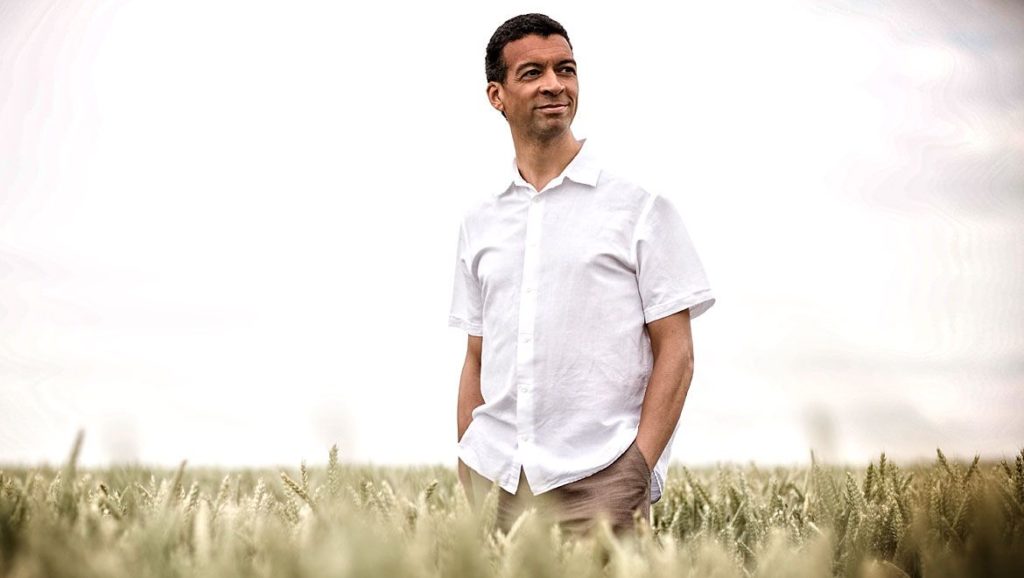
Baritone Roderick Williams
BRITAIN’S favourite baritone, the ubiquitous Roderick Williams, brought a typically eclectic programme to the Leeds Song festival under the banner “A touch of the exotic”, with Andrew West as his deft collaborator at the piano.
It involved ten composers from Schubert to Sally Beamish, four of them female. It was right to begin with Schubert: he has always been the yardstick against whom song composers measure themselves. His setting of Goethe’s Kennst du das Land? distils the Romantic poets’ infatuation with Eastern climes. Sure enough, Williams’s quickened pulse at ‘Dahin!’ (it’s there!) captured that excitement.
Even more exotic, as more Debussyan, was Denis Browne’s last song, Walter de la Mare’s Arabia (1914), with its delicate piano and opiate aura, a timely reminder of a great talent snuffed out by war.
Arthur Bliss’s pithy Siege and Rebecca Clarke’s elegy A Dream were but preludes to Amy Woodforde-Finden’s much-loved Kashmiri song, where our duo conjured nostalgia without undue sentimentality.
Duparc’s only two settings of Baudelaire, arguably his best songs, were finely drawn. The shimmering impressionism of L’invitation au Voyage was balanced by his last mélodie, the sonnet La Vie Antérieure, which boiled up into a sensuous climax reflecting the flashing foam. The gradual return of the painful secret in the poetry was complemented by West’s beautifully poised postlude.
Sally Beamish’s Four Songs from Hafez were a commission from Leeds Lieder in 2007; it was good to hear them again. They centre on three birds and a fish as translated from 14th century Persian by Jill Peacock.
Much of the composer’s illustrative talent is found in the piano, birdsong of course but also watery undercurrents of excitement in ‘Fish’ where Williams accentuated Hafez’s “wine of creation”. ‘Hoopoe’, a love letter, had some delicate touches here.
Hafez’s wine also featured in Wolf’s Erschaffen und Beleben (Creation and Animation), as answer to a clodhopper’s problems. Williams was well attuned to Goethe’s sense of humour both here and in Wolf’s First Coptic Song.
The Jamaican-born composer Eleanor Alberga’s star has been rising rapidly in recent years. Her early years as a pianist and involvement with dance are both assimilated into The Soul’s Expression (2017), four settings of 19th century female poets. Described as a piano sonata with linking songs, it is through-composed (running without a break).
The songs are wonderfully evocative of nature, with piano interludes that take the place of strings in the original version. After an ecstatic glimpse of heaven in a cornfield, there are two calmer sections involving a gentle breeze at sunset and a shower of rose petals, before the title song, to an Elizabeth Barrett Browning sonnet, delves into more spiritual territory, with the baritone briefly using falsetto against whispering keyboard. It was a touching experience.
More light-hearted, although no less powerful, were Harry Burleigh’s Five songs of Laurence Hope –the pseudonym of Adela Florence Nicolson – which are much influenced by negro spirituals. They include ‘Kashmiri Song’, but using all three of its verses (unlike Woodforde-Finden’s version) and tellingly repeat its ‘Where are you now?’ at the close. There was a glorious climax to ‘Worth while’ and especially strong emotion in the final song, ‘Till I Wake’. Williams and West are a superb duo.
Review by Martin Dreyer
